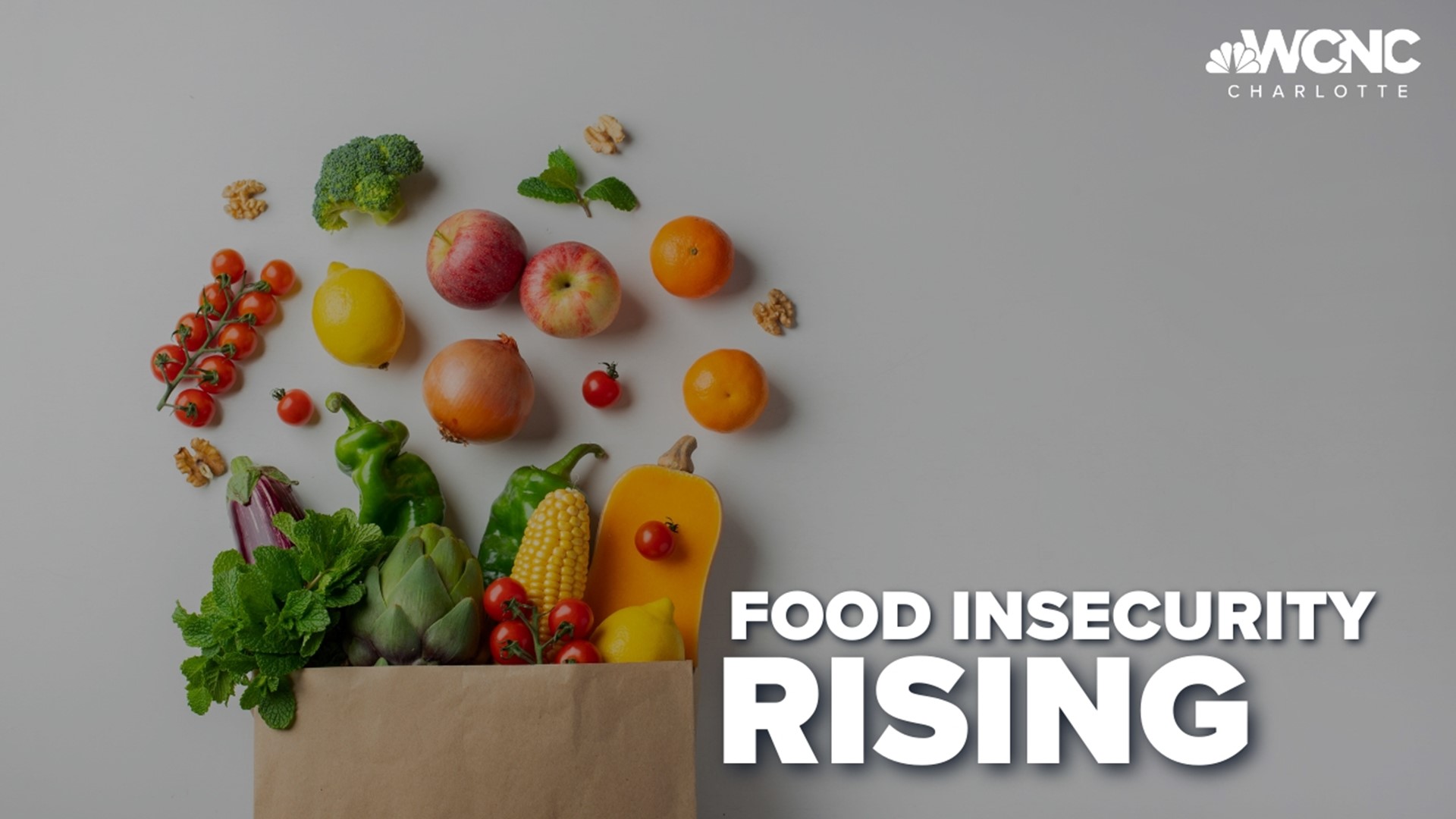CHARLOTTE, N.C. — One of the last pandemic-era assistance programs ended in February in North Carolina.
SNAP benefits, which used to be known as food stamps, saw boosted funding during the pandemic. The program helped roughly 1.6 million people in North Carolina, according to the Center on Budget and Policy Priorities. That's about 1 in 7 residents.
The typical SNAP household will see monthly allotments drop by at least $95.
But for older Americans and big families, the difference could be hundreds of dollars a month. This puts pressure on food banks, which will now need more food and volunteers.
One Charlotte-area nonprofit spoke on the misconception of who needs these services most.
"Many of the people that we help are actively working but they're living paycheck to paycheck and they simply just cannot get caught up," Loaves & Fishes executive director Tina Postel said.
The additional SNAP benefits may be going away, but the need clearly is not.
On Wednesday, Loaves & Fishes Friendship Trays and the Keith Family YMCA served more than 150 families in about an hour, giving them fresh vegetables, bread, and chicken.
The typical household receiving food stamps just saw their monthly allotment drop by at least $95 and older Americans and bigger families will see an even bigger loss. According to NCDHHS, the average food stamp recipient in North Carolina will go from getting $8.12 a day per person to $5.45 a day per person.
Tashina Figueroa, the community outreach director for Loaves and Fishes Friendship Trays, said they’ve already seen clients signing up in advance for food share pop-ups, knowing they’ll need even more help.
“We put programs in place and will continue to put programs in place and seek out funding and partnerships to help us continue to meet the need,” she said.
This comes months after the federal program making school lunches free for all students during the pandemic also ended.
“For kids what we can see is there’s a basic need for food just in terms of their growth and development, including their brain development which is just so dependent on fuel from food. But even beyond that, we can see from programs like the school lunch program across the country is that not only provides kids good nutritional intake but it helps them prepare to learn," Giridhar Mallya with the Robert Wood Johnson Foundation said.
They're advocating for some of these changes to be made permanent on the federal level.
“To the extent that those policies don’t happen at the national level, we think states have a really important role to play. Including states like North Carolina," Mallya said.
Plus, no one’s wallet is safe from the rising cost of food.
“Anecdotally, from the clients I support, I’m seeing them spend 10-20% on their groceries, I’m just seeing it in their budgets and they’re not changing anything,” Bernadette Joy with Crush Your Money Goals said.
While food pantries prepare to do more, there are ways to save at the store. Joy encourages people to make smarter swaps. The cost of meats, fish and eggs, are on average 14% more expensive but adding more fruits and vegetables to a meal can help stretch a budget.
She also said avoiding the middle aisles of the store can keep filler foods from racking up the bill.
“When you start at the grocery store, literally go around the outside because those are usually your designated staples, the meats and the proteins and the milk the fruits and stuff,” Joy said.
She adds sometimes prepared meals in the grocery store are less expensive than the cost of all of the ingredients, plus it can prevent food waste.
Contact Chloe Leshner at cleshner@wcnc.com and follow her on Facebook, Twitter and Instagram.
Contact Kia Murray at kmurray@wcnc.com and follow her on Facebook, Twitter and Instagram.
WCNC Charlotte is always asking "where's the money?" If you need help, reach out to WCNC Charlotte by emailing money@wcnc.com.
SEEKING SOLUTIONS
WCNC Charlotte is committed to reporting on the issues facing the communities we serve. We tell the stories of people working to solve persistent social problems. We examine how problems can be solved or addressed to improve the quality of life and make a positive difference. WCNC Charlotte is seeking solutions for you. Send your tips or questions to newstips@wcnc.com.
FREE PODCASTS
Flashpoint is a weekly in-depth look at politics in Charlotte, North Carolina, South Carolina, and beyond with host Ben Thompson. Listen to the podcast weekly.
SUBSCRIBE: Apple Podcasts || Spotify || Stitcher || Google Podcasts
Locked On is the leading podcast network for local sports and is owned by WCNC Charlotte's parent company TEGNA.
Listen to Locked On here.
Wake Up Charlotte To Go is a daily news and weather podcast you can listen to so you can start your day with the team at Wake Up Charlotte.
SUBSCRIBE: Apple Podcasts || Spotify || Stitcher || TuneIn || Google Podcasts
All of WCNC Charlotte's podcasts are free and available for both streaming and download. You can listen now on Android, iPhone, Amazon, and other internet-connected devices. Join us from North Carolina, South Carolina, or on the go anywhere.

